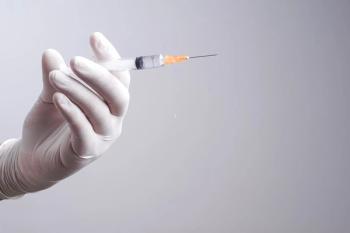
Intravitreal anti-VEGF drugs effective for DME with caveats
A literature review indicates that intravitreal administration of anti-VEGF drugs are effective for treating DME, but close attention should be paid to the potential for elevated IOP, cataract progression.
A literature review1 indicates that intravitreal administration of anti-vascular endothelial growth factor (VEGF) drugs are effective for treating diabetic macular edema (DME).
However, the investigators advise close attention to the potential for elevated intraocular pressure (IOP) and cataract progression.
Justin Ehlers, MD, from the Tony and Leona Campane Center for Excellence in Image-Guided Surgery and Advanced Imaging Research, Cole Eye Institute, Cleveland Clinic, Cleveland, and colleagues from multiple centers across the US reported the results of a PubMed literature search that revealed 230 publications.
Of these the full text of 108 were reviewed and ultimately 21 with level I evidence were included in the assessment.
The goal of this effort was to review the evidence on the safety and efficacy of current anti- VEGF and intravitreal corticosteroid pharmacotherapies for treating DME.
The investigators reported, “Seventeen articles provided level I evidence for 1 or more anti-VEGF pharmacotherapies, including ranibizumab (14) [Lucentis, Genentech Inc.], aflibercept (5) [Eylea, Regeneron Pharmaceuticals], and bevacizumab (2) [Avastin, Genentech Inc.] alone or in combination with other treatments for DME.”
They also found that level I evidence was identified in seven articles on intravitreal corticosteroid therapy for treatment of DME: triamcinolone (1), dexamethasone (4), and fluocinolone acetonide (2).
Review conclusions on DME therapies
The review of these publications indicated that “multiple intravitreal pharmacotherapies are safe and effective in the treatment of DME.
Both anti-VEGF injection and corticosteroid implant treatments result in significant functional and anatomic improvements.
Level I data on the comparative effectiveness of various anti-VEGF inhibitors and various treatment intervals are limited.
Corticosteroid implants are associated with higher cataract and increased IOP-related adverse effects compared with anti-VEGF therapeutics.”
The authors pointed out that additional evidence is needed to assess the comparative efficacy among these therapies, combination therapies, and intervention time.
Given that a great deal of evidence is lacking, hey also advised physicians to individualize patient treatment considering that there is “limited high-quality comparative efficacy data,” and that “broad therapeutic access for patients is critical to maximize outcomes.”
--
Reference
1. Ehlers JP, Yeh S, Maguire MG, et al. Intravitreal pharmacotherapies for diabetic macular edema. A report by the American Academy of Ophthalmology. Ophthalmology published August 23, 2021. Doi:
Newsletter
Don’t miss out—get Ophthalmology Times updates on the latest clinical advancements and expert interviews, straight to your inbox.





























